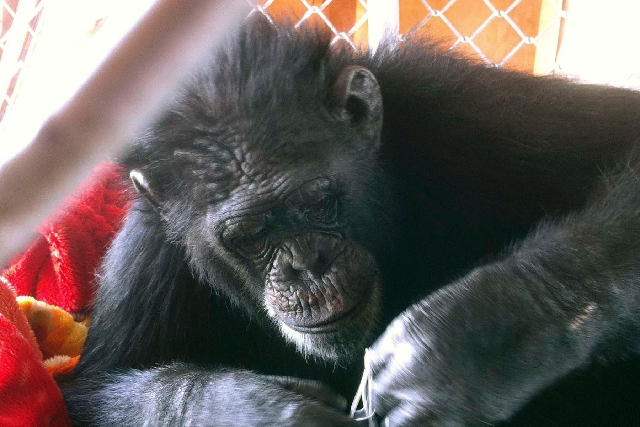Lawmaker pushes bill to restrict ownership of dangerous animals

CARSON CITY — Senate Minority Leader Michael Roberson argued Thursday night that it’s imperative to public safety for the Legislature to swiftly approve his bill to outlaw the private ownership of dangerous animals.
“Neighbors may not know a chimpanzee or tiger lives next door,” said Roberson, R-Las Vegas. “It is only a matter of time (until) a neighbor is killed.”
His Senate Bill 245 would outlaw the private ownership of chimpanzees, lions, bears, tigers, wolves, many snakes and other potentially dangerous animals. People who already own these animals would be exempt from the bill.
Exemptions would be given to zoos, circuses, Strip animal shows and others.
Roberson contended Nevada is one of six states with lax laws on the regulation of dangerous animals.
Humane Society of the United States lobbyists testified the bill was under consideration last June, but Roberson did not talk about his plan publicly until the July escape in Las Vegas of two chimpanzees, Buddy and C.J., from an enclosure in a northwest valley neighborhood.
Buddy was killed by police when he “aggressively approached” onlookers during the escape. When C.J. escaped later, she was removed from her owners, Timmi DeRosa and Nikki Grusenmeyer. DeRosa, an exotic animal trainer, said animal rights activists let the chimp loose during the second escape.
No vote was taken on the bill. An amendment to broaden the exemptions will be considered at a future hearing.
The Senate Natural Resources Committee hearing on Roberson’s bill did not start until 7 p.m.
More than 250 people attended in Carson City and by teleconference in Elko and Carson City when the hearing began on four animals bills at 1 p.m. SB245 was the last bill reviewed by the committee.
Bill opponent Scott Shoemaker, a Pahrump resident who is co-founder of Responsible Exotic Animal Ownership, said the last time someone was killed by an exotic animal in Nevada was 2001 when an animal trainer was killed by a tiger in a licensed facility.
Shoemaker called that a “voluntarily accepted occupational hazard.”
REXANO released a report that said six people have been killed in Nevada by dogs and horses since 2008. Two people were killed by horses in rodeo events and four by dogs, including two children attacked by pit bulls.
Shoemaker added that there are already local regulations in 13 of the 17 counties for dangerous animals. The bill will do nothing more to protect people from exotic animals because it provides no new fencing or enclosure rules, he said.
Owners of bobcats and cougars also testified against the bill, including a Czech-born woman who argued that Nevada should be a bastion for personal freedom. Others were still waiting to testify at 8:30 p.m..
Las Vegas police lobbyist Chuck Callaway testified he was involved in a case in Southern Nevada after a black panther escaped from a backyard enclosure. Callaway said he fears an exotic animal will escape and end up in a backyard where children are playing.
In other business, about 10 Nevadans complained earlier Thursday that a bill to prohibit them from feeding wildlife would stop them from feeding squirrels, fish, chipmunks and rabbits.
Sen. Mark Manendo, D-Las Vegas, told members of the Senate Natural Resources Committee — whose members faced jammed hearing rooms in both Carson City and Las Vegas — that his grandfather lived a longer life because of his hobby of feeding “his chippies” — chipmunks — at Sunset Park.
Natural Resources Chairman Aaron Ford, D-Las Vegas, did not take a vote on Senate Bill 371.
The first violation would result in a citation warning not to feed animals. The second offense would carry a $250 fine.
But the bill’s sponsor, Sen. Ben Kieckhefer, R-Reno, said the feeding prohibition does not apply to horses.
The state Wildlife Department does not consider wild horses as “wildlife,” although the state often advises people not to feed them.
Kieckhefer said that his major concern was about Incline Village residents feeding bears, a step that results in the animals frequenting the urban area regularly.
Contact Capital Bureau Chief Ed Vogel at evogel@reviewjournal.com or 775-687-3901.












